#2001 A Sky Odyssey
Photo
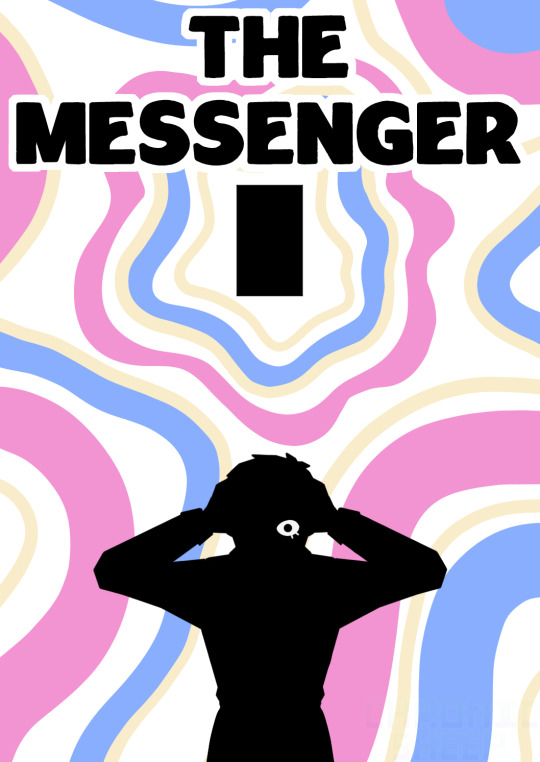
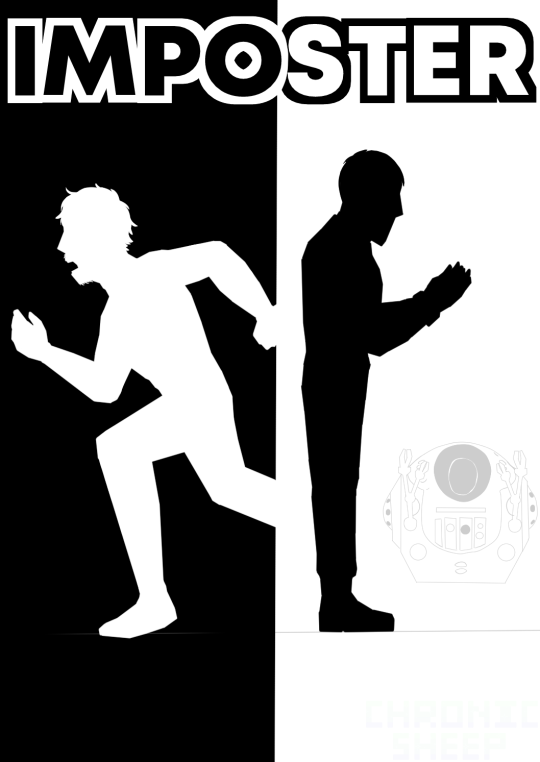

Here are some simple little mockup posters(?) for my 2001 A Space Odyssey AUs!
A rundown of each is under the Readmore.
The Messenger AU- As Discovery One makes it’s way to the Jovian system, Dave starts receiving visions that grow more frequent and vivid as they approach; Sights of distant galaxies and worlds take over his mind and he slowly becomes fixated on them ( possibly also an influence from the Monolith ), gradually changing his perception that these are just random thoughts into a firm belief that he’s being communicated with. He keeps this from Frank and Hal the best he can, though he noticeably loses focus in what the other’s are saying and will often draw what he remembers seeing as time goes on.
Once they are close enough to TMA-2 for an EVA Pod to make it there, Dave ‘goes rogue’ while Frank is asleep, shutting Hal off to keep him from interfering. Frank wakes up shortly after, just in time to find Dave, only in his flight suit, behind the locked interior door to the Pod Bay and about to take off. He shouts at him to stop and open the door, but it’s too late.
The next time Dave returns he has become a Star Child and has some explaining to do.
Imposter AU- ( Get all your Among Us jokes out now ) The trip to Jupiter goes without incident; Hunter, Whitehead and Kaminski are awoken from hibernation to begin studying the Monolith in orbit, however, Dave and Frank are kept awake for a short while to assist in their observations.
Dave is eventually sent out to inspect the Monolith, and to everyone’s surprise he is suddenly sucked through it; panic ensues as the crew try to contact Bowman and discern what happened, but he returns soon after unharmed. He’s of course given a quick physical once he’s back in the ship; everything appears to be normal so he’s then questioned about what he saw, to which he gives vague answers and claims he can’t quite remember.
A few weeks pass, and Frank and Dave are finishing up what they need to do and preparing for hibernation when something else exits the Monolith. It’s an EVA Pod- except it appears severely charred and worn. Then a voice comes over the communications system screaming to let him in, it’s Dave’s. Once one of them moves a pod out of the way and the mysterious extra one enters, Dave exits from it’s hatch. He’s disheveled, sporting some facial scruff and unkempt hair, he’s completely naked, and most worrying of all is that he’s covered in decently fresh surgical scars. As soon as Dave exits the pod he blacks out, hitting the deck’s floor.
The Dave that’s been with them seems just as shocked, but he’s ushered into a spare room or closet which is now very abruptly going to be used as a makeshift interrogation and holding cell- Hal is told not to let him out without explicit permission. Meanwhile the Dave that’s just returned is brought to the medical bay for examination and rest, when he awakes once more it seems he’s too shocked by his ordeal to properly communicate what happened.
It turns out the ‘Dave Bowman’ that had been sent back the first time was a fake made to keep the crew happy and to make observations/carry out tasks on the Monolith Beings behalf. He looks normal on the surface but the more you examine him the more ‘off’ and uncanny he seems. His wrinkles seem molded in rather than naturally formed, his teeth are too perfect, he has no scars, his fingerprints are far too uniform, his blood type is simply a mix of the most common blood types with no regard for how they’d work, and if you were to open him up you’d find that many of his organs appear to have no function than just filling space or have dead ends.
Imposter Dave hadn’t even known he was fake or that some of his actions were being influenced by The Monolith, after all he was given all the memories and experiences of the Real Dave Bowman, but of course no one believes him when he says he honestly doesn’t know what’s going on- but now he has to come to terms with the fact his memories are false and that he’s technically not even human. Meanwhile the Real Dave is having to recover from being used as an extraterrestrial science experiment and doubts if he even really escaped or if this is just a simulation to placate him, after all, the Monolith Beings tried to replicate a human hospital to their best ability while he was in there- but several small errors and inconsistencies in how the place functioned and Bowman’s memories of the Discovery gradually returning made it obvious that something was wrong.
2001 A Sky Odyssey- Instead of the Discovery One being a Spaceship, it is a fictionally advanced version of a Boeing 777, with Hal as it’s autopilot. Dave Bowman is the flight’s Captain while Frank Poole is his First Officer, and they’re tasked with flying the aircraft over the Atlantic Ocean to a specific destination. Only three passengers are aboard, the scientists Hunter, Whitehead and Kaminski, and they’re actually out to study a strange artifact floating over the open sea, the Monolith.
Like in the main timelines of the book and movie, as Dave and Frank approach their destination- Hal becomes stressed about the fact that they may find out the true purpose of their mission, and so somehow incapacitates Frank, locks Dave out of the cockpit, and attempts to murder all those aboard in order to ensure the success of the mission.
Hal fails though, as Dave is able to reenter the cockpit and shut him off before substantial damage is done. It’s unknown what happens when they reach the Monolith.
#2001 A Space Odyssey#2001 aso#Dave Bowman#Frank Poole#The Messenger AU#Imposter AU#2001 A Sky Odyssey#Aliens#Alien Abduction#Commercial Aviation#Avgeek#AUs
121 notes
·
View notes
Text
One of my intial notes when watching 2001 was that all the spaceships and structures appear to just float aimlessly around. (Especially with the music playing) there’s no direction or indication they’re being moved etc- like no visual propulsion
Then I watched a plane go by and I’m an idiot.
#you need a boost to get it in the sky (in this case out to space) but beyond that not really#djsksksmsmsm#2001 a space odyssey#2001 aso#space odyssey#movie critique
15 notes
·
View notes
Text
But Earth was waning, as the Station orbited toward the night side of the planet; in a few minutes it would be a huge black disc, spangled with the lights of cities. And then the sky would belong to the stars.
Arthur C. Clarke, 2001: A Space Odyssey
6 notes
·
View notes
Text

This is my freighter in No Man's Sky. Guys. You know what it looks like. YOU KNOW. WHAT IT LOOKS LIKE. Right.
(also I dressed my character as Dave and took random pictures with portals because it kind of looked like the monolith. what a great game. also you can plummet yourself to death by jumping off a space ship and exposing yourself to cosmic radiation when going EVA to fix a ship compartment... oh wait.
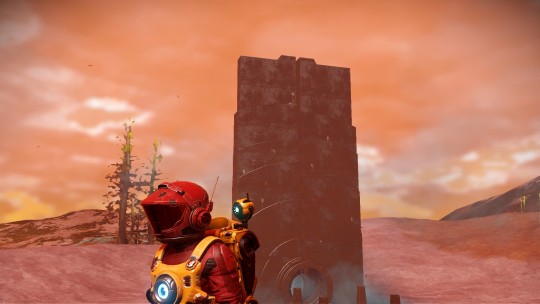
#i was over the moon when i discovered there were ships of this shape in nms#and spotted one myself#spent all my nanites recoloring it white#no man's sky#2001 a space odyssey#and no the answer isn't “space sperm”
5 notes
·
View notes
Text
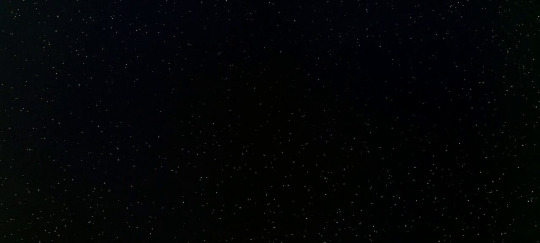
2001: A Space Odyssey (1968)
2 notes
·
View notes
Text
in an attempt to be more offline (absolute failure so far) i wrote the next installment of Nightingales by hand in an actual notebook. imagine that. behold, fanfic that's touched grass... or something.
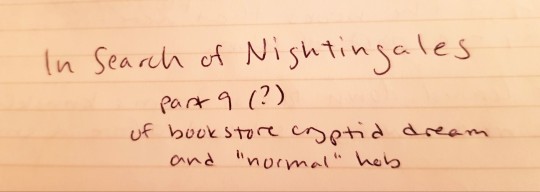
Dream has taken to leaving random books on Hob's nightstand. This is no abnormal occurrence, except that these aren't from Dream's infinite collection of books he's "currently reading," but rather seem to be left there for Hob.
Hob will finish a book, and within the hour it will disappear back to the Library, miraculously replaced by another. At first this suits Hob well enough. The cafe is only getting busier, and while Hob does love trawling through the Library's endless stacks in search of a new read, he'd rather spend his free time with Dream. Perhaps Dream is only trying to facilitate that through this method, or trying to make Hob happy by applying his knowledge in the area where it's vastly broader.
But then it starts to get weirder. Whereas before, Dream's selected books had been exactly to Hob's tastes--as they usually are, it is his specialty, after all--slowly they start to diverge.
First it's an epic tome about interstellar travel. Post-apocalypse, final earth survivors traveling light years to an untamed planet, and so on. Hob likes sci-fi well enough, but this particular one is getting a little too 2001: A Space Odyssey for his tastes, a little too abstract and philosophical. Perhaps one that Dream likes that he wanted to share?
Then comes the horror novel. And what horror. A man born and raised in underground rooms, who did not realize he was bereft of the sky until an attempted rescue caved in his tunnels and nearly suffocated him. Dragged from the soil, gasping, he had to cover his head lest he go blind.
'David had read of plants that grew upwards. Instead of the deep roots he'd touched all his life, they had stems, and leaves, and these went up, into another world. Birthed into cold fear, David thought.
He was one of those plants. He stretched long fingers up through the soil, gasping for breath. Warm earth parted and air greeted him, air chill and dry as he'd never tasted it. A searing pain in his unused eyes. He did not even have a word for the brutal shine that fell upon his face.
(Light, he would later think. Sunlight.)
No matter how hard he pressed his hands to his eyes it was not blocked out. He whimpered, and the same hands that had pulled him from the collapsed earth, hands painful in their kindness, laid a blanket over him, covering his head in warm darkness again. No, not a blanket. A jacket?
Another head peeked under the collar of the jacket, letting in a sliver of brightness before it was shut out again. Oh. His rescuer. His arms were bare; it was his jacket that David was wearing over his head.
"Hey," said his rescuer. His voice was warm as the soil. "You alright?"'
Perhaps it isn't horror, Hob thinks, only afterwards.
Then there's a book of love poems, though they're strange and hyper-modern, and Hob can't shake the odd sense that he shouldn't be reading them, that Dream has, somehow, snatched them out of a time yet to be.
He finally confronts Dream when he's left a relatively straightforward, if bland, romance of the type he hadn't thought either of them particularly went for. (Even Dream wouldn't be able to pull sex inspiration from it as he likes to do with his bodice rippers, the book isn't nearly spicy enough for his tastes.)
He marches back into the bedroom one morning, after several minutes of making coffee and mulling, and holds the book up in front of Dream's face. "Dream. What."
Dream looks up from where he's reclining in Hob's bed, several books scattered around him. "Did you not like it?"
"Did you?"
Dream hums, looking down again at his own book. "It has merits."
"Why, though. You keep giving me these books. Why?"
Dream continues studiously reading his book, though he isn't turning pages. So it isn't teasing, then. Nor even some lighthearted attempt to get Hob to expand his reading horizons. It's something deeper.
"Dream," Hob says, sitting on the side of the bed by his thigh. "Come on. Talk to me. What is it?"
"Page one-fifty-two," says Dream in a quiet voice, and it takes a second for Hob to realize he means the book Hob is still holding.
Hob hasn't managed to get that far in the book. He flips through it, anxiety building, more anxiety than he thinks a light, beachy romance is ever meant to produce.
He turns to the page, about three-quarters of the way through the book.
'Lacy had calculated it once. Across her entire career, she had written two million, five hundred twenty-two thousand, nine hundred and eighty-three words.'
Right. Hob remembers from the few chapters he'd managed to read that the protagonist is a writer.
'2.5 million words about romance. Who could possibly have so much to say on the topic? 2.5 million words of circling and circling the point. Not letting herself see it well enough to skewer it.
All those words came only to this: she wanted to marry him, and she didn't know what to do.'
Hob drops the book.
It tumbles to the floor in a flutter of bending pages, but he pays it no mind. He takes Dream's hands in his own, letting Dream's book fall closed on his knees. Dream looks up at him hesitantly, from under his eyelashes. You silly thing, Hob thinks, with heart-clenching fondness. I love you so.
All of it had been a message, in Dream's own oblique way. Borrowed metaphors from the vast catalog of his brain. That's how he connects: through the books that Hob knows are -- in some strange way -- a part of him.
He leans down to kiss Dream's knuckles, like he's bowing his head before a shrine. Then he looks up. Dream is watching him, expression somewhere between wary and awed.
"You don't have to know what to do about anything else," Hob says, "so long as you marry me."
Dream smiles tentatively, and tips his forehead against Hob's. He can be so strange and mysterious at times, but more often than not, when they're alone in their bedroom, he's like this: soft, wanting, just on the edge of shy, and that's the version of Dream Hob most wants to bundle up and away from the world. Even if he knows it's impossible, and not right besides; Dream can't just live in his bedroom, he has to live in his stories, and stories are out in the world. Hob can't help but want it anyway.
"I would like that," Dream says, smile soft. Hob kisses his cheek, body full of warm light.
He pulls Dream into a proper hug, tucking his face into his shoulder. He feels Dream's smile against his neck. The warm weight of him in his arms, in his bed.
So improbable to have snagged a thing such as Dream from the expanse of his existence, and cuddled him up in the cozy confines of his simple cafe. But as Dream had said. The door exists because Hob uses it. He met Dream because he went to his shop that day. He went to his shop that day because he was to meet Dream. Each improbability has a circular path.
Christ. He's thinking like that sci-fi novel Dream had given him.
Hob doesn't know what a marriage with a creature like Dream -- he still doesn't know what that is, exactly -- is meant to be like. It's uncharted space.
But he knows that he wants it. Wants Dream.
He holds his darling close and kisses the corner of his mouth. Dream's lips are sweet with happy tears.
"You will marry me, then?" he murmurs, more pleased repetition of the thought than a question.
Hob gets the book of infamous page one-fifty-two off the floor. Turns to page one-fifty-three. Finds the word he needs, swipes Dream's pen from the nightstand, circles it. Hands the book to him, open.
Dream touches the circled word with a reverent fingertip, and smiles.
#not sure how i feel about this hand writing experiment...#it def came out different when written by hand#at least i didn't make you all read it in my handwriting XD#bookstore cryptid dream#dreamling#my writing#dream of the endless#hob gadling#i kinda hate writing proposals tbh. and yet i keep doing it 🤔
206 notes
·
View notes
Note
Do you still have the list of movies that inspired ST4? I had a picture of it but I lost it and I haven't been able to find it since. Please and thank you in advance.
Yep!
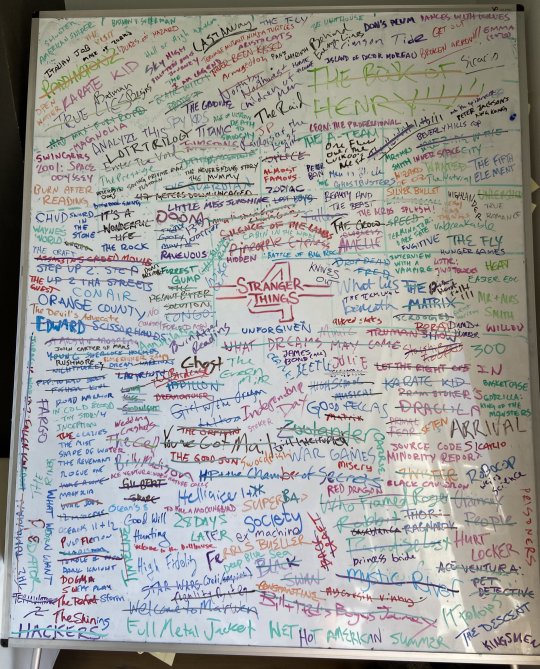
Long post warning lol
300
2001: A Space Odyssey
47 Meters Down: Uncaged
12 Monkeys
28 Days Later
13th Warrior
Ace Ventura: Pet Detective
Ace Ventura: When Nature Calls
Altered States
Amelie
American Sniper
Analyze This
Annihilation
Aristocats
Armageddon
Assassins Creed
Avengers: Age of Ultron
Arrival
Almost Famous
Batman Begins
Batman V. Superman
Basket Case
Battle at Big Rock
Beauty and the Beast
Beetlejuice
Behind Enemy Lines
Beverly Hills Cop
Bill and Ted’s Bogus Journey
Billy Madison
Black Cauldron
Black Swan
Boondock Saints
Borat
Bram Stoker’s Dracula
Burn After Reading
Broken Arrow
Blade Runner
C.H.U.D
Con Air
Cast Away
Congo
Constantine
Children of Men
Cabin in the Woods
Crank
Casablanca
Carrie
Crimson Tide
Clueless
Dukes of Hazzard
Don’t Breathe
Death to Smoochy
Doom
Dark Knight
Dogma
Deep Blue Sea
Dreamcatcher
Drop Dead Fred
Die Hard
Die Hard 2
Die Hard 3
Don’s Plum
Dances with Wolves
Dumb and Dumber
Edward Scissorhands
Enter the Void
Ex Machina
Event Horizon
Emma (2020)
Forrest Gump
Fargo
Fisher King
Full Metal Jacket
Ferris Bueller
Fallen
Fugitive
Ghost
Girl with the Dragon Tattoo
Ghostbusters
Good Fellas
Girl Interrupted
Godzilla: King of the Monsters
Get Out
Good Will Hunting
Hackers
High Fidelity
Hellraiser 1
Hellraiser 2
Harry Potter and the Chamber of Secrets
Hidden
High School Musical
Hurt Locker
Heat
Hunger Games
Highlander
Hell or High Water
Home Alone
I am Legend
It’s a Wonderful Life
In Cold Blood
Inception
I am a Fugitive from Chain Gang
Inside Out
Island of Doctor Moreau
It Follows
Interview with a Vampire
Inner Space
Into the Spiderverse
Independence Day
Jupiter Ascending
John Carter of Mars
Jurassic World: Fallen Kingdom
James Bond (All Movies)
Julie
Karate Kid
Knives Out
Kingsmen
Little Miss Sunshine
Labyrinth
Long Kiss Goodnight
Lost Boys
Leon: The Professional
Let the Right One In
Little Women (1994)
Mad Max: Fury Road
Magnolia
Men in Black
Mimic
Matrix
Misery
My Cousin Vinny
Mystic River
Minority Report
Mr. and Mrs. Smith
Neverending Story
Never Been Kissed
No Country for Old Men
Nightmare on Elm Street 3: Dream Warriors
North by Northwest
Open Water
Orange County
Oceans 8
Oceans 11
Oceans 12
One Flew over the Cuckoo’s Nest
Ordinary People
Paddington 2
Platoon
Pulp Fiction
Papillon
Pan’s Labyrinth
Pineapple Express
Peter Pan
Princess Bride
Paradise Lost
Primal Fear
Prisoners
Peter Jackson’s King Kong
Reservoir Dogs
Ravenous
Rushmore
Road Warrior
Rogue One
Reality Bites
Raider of the Lost Ark
Red Dragon
Robocop
Shooter
Sky High
Swingers
Sword in the Stone
Step Up 2
Spy Kids
Saving Private Ryan
Shape of Water
Swept Away
Star Wars: Return of the Jedi
Star Wars: The Empire Strikes Back
Superbad
Society
Swordfish
Stoker
Splice
Silence of the Lambs
Source Code
Sicario
Se7en
Starship Troopers
Scrooged
Splash
Silver Bullet
Speed
The Visit
The Italian Job
The Mask of Zorro
True Lies
The Blair Witch Project
The Lord of the Rings Trilogy
Tangled
The Craft
The Guest
The Devil’s Advocate
The Graduate
The Prestige
The Rock
Titanic
Teenage Mutant Ninja Turtles
The Fly
Tombstone
The Mummy
The Guardian
The Goofy Movie
The Peanut Butter Solution
Toy Story 4
The Ring
The Crazies
The Mist
The Revenant
The Perfect Storm
The Shining
Terminator 2
The Truman Show
Temple of Doom
The Cell
To Kill a Mockingbird
Timeline
The Good Son
The Orphan
The Birdcage
The Green Mile
The Raid
The Cider House Rules
The Lighthouse
The Book of Henry
The A-Team
The Crow
The Terminal
Thor Ragnarok
Twister
The Descent
The Birds
Total Recall
The Natural
The Fifth Element
True Romance
Terminator: Dark Fate
The Hobbit Trilogy
Unforgiven
Unbreakable
Unleashed
Very Bad Things
Wayne’s World
What Women Want
War Dogs
Wedding Crashers
What’s Eating Gilbert Grape
Welcome to the Dollhouse
Welcome to Marwen
Wet Hot American Summer
What Lies Beneath
What Dreams May Come
War Games
Who Framed Roger Rabbit
Weird Science
Willow
Wizard of Oz
Wanted
Young Sherlock Holmes
You’ve Got Mail
Zodiac
Zoolander
65 notes
·
View notes
Text
Current submission list:
Amanda Waller - DC
Asher Mir - Destiny
Audrey Rose - Descendants
Axol - SMG4
Bioshock 1 cast - Bioshock
Blaze the Cat - Sonic the Hedgehog
Briarlight - Warrior Cats
Bumble - Warrior Cats
c!Niki - DSMP
Chameleon - Wings of Fire
Dark Choco Cookie - Cookie Run Kingdom
David Haller - X-Men Comics
Elnor - Star Trek: Picard
Ethan Green - Hatchetfield
Indiana Jones - Indiana Jones Series
Jake - Disventure Camp
Joan of Arc - Clone High
Klavier Gavin - Ace Attorney
Kunikida - Bungo Stray Dogs
Laris - Star Trek: Picard
Milo Thatch - Atlantis
Morro - Ninjago
Quinn Fabray - Glee
Ruth Aldine - X-Men Comics
Shadow the Hedgehog - Sonic Boom
Sky - Wings of Fire
Snowkit - Warrior Cats
Spirit Albarn - Soul Eater
Stonemover - Wings of Fire
Taco - Battle For BFDI/Battle for BFB
The Monolith - 2001 A Space Odyssey
Vanny- FNaF Security Breach
Wario - Super Mario
13 notes
·
View notes
Text
Qualifying for the Indy 500 is here so in honour of that, this is Indycar 2024 number two songs. Enjoy. Consider this as a hype playlist if you want 😂
Helio Castoneves (10th May 1975) - Minnie Riperton - Lovin' You
Takuma Sato (28th January 1977) - Julie Covington - Don't Cry For Me Argentina
Katherine Legge (12th July 1980) - Odyssey - Use It Up And Wear It Out
Scott Dixon (22nd July 1980) - Olivia Newton John & Electric Light Orchestra - Xanadu
Ryan Hunter-Reay (17th December 1980) - St Winifred's School Choir - There's No One Quite Like Grandma
Will Power (1st March 1981) & Ed Carpenter (3rd March 1981) - Ultravox - Vienna
Romain Grosjean (17th April 1986) - Cliff Richard & The Young Ones - Living Doll
Marco Andretti (13th March 1987) - Ben E King - Stand By Me
Colin Braun (22nd September 1988) - Phil Collins - Groovy Kind Of Love
Graham Rahal (4th January 1989) - Angry Anderson - Suddenly
Agustin Canapino (19th January 1990) - Kylie Minogue - Tears On My Pillow
Marcus Ericsson (2nd September 1990) - Betty Boo - Where Are You Baby?
Josef Newgarden (22nd December 1990) - Vanilla Ice - Ice Ice Baby
Alexander Rossi (25th September 1991) - Salt-N-Pepa - Let's Talk About Sex
Felix Rosenqvist (7th November 1991) - U2 - The Fly
Conor Daly (15th December 1991) - George Michael & Elton John - Don't Let The Sun Go Down On Me
Kyle Larson (31st July 1992) - Snap! - Rhythm Is A Dancer
Jack Harvey (15th April 1993) - Snow - Informer
Scott McLaughlin (10th June 1993) - Ace Of Base - All That She Wants
Tom Blomqvist (30th November 1993) - Elton John & Kiki Dee - True Love
Pietro Fittipaldi (25th June 1996) - Baddiel, Skinner & Lightning Seeds - Three Lions
Alex Palou (1st April 1997) - Spice Girls - Who Do You Think You Are?
Santino Ferrucci (31st May 1998) - Brandy & Monica - The Boy Is Mine
Kyle Kirkwood (19th October 1998) - 911 - More Than A Woman
Callum Ilott (11th November 1998) - E-17 - Each Time
Linus Lundqvist (26th March 1999) - Boyzone - When The Going Gets Tough
Pato O'Ward (6th May 1999) - Offspring - Why Don't You Get A Job?
Colton Herta (30th March 2000) - Moloko - The Time Is Now
Christian Rasmussen (29th June 2000) - Black Legend - You See The Trouble With Me
Marcus Armstrong (29th July 2000) - Ronan Keating - Life Is A Rollercoaster
Rinus Veekay (11th September 2000) - Sonique - Sky
Christian Lundgaard (23rd July 2001) - D12 - Purple Pills
Sting Ray Robb (3rd September 2001) - Five - Let's Dance
David Malukas (27th September 2001) - DJ Otzi - Hey Baby
Theo Pourchaire (20th August 2003) - Ultrabeat - Pretty Green Eyes
Kyffin Simpson (9th October 2004) - Ronan Keating - I Hope You Dance
Nolan Siegel (8th November 2004) - Destiny's Child - Lose My Breath
All added to this playlist 😊😊
#helio castroneves#katherine legge#scott dixon#will power#romain grosjean#graham rahal#marcus ericsson#josef newgarden#alexander rossi#felix rosenqvist#conor daly#scott mclaughlin#alex palou#kyle kirkwood#callum ilott#pato o'ward#colton herta#marcus armstrong#rinus veekay#christian lundgaard#david malukas#theo pourchaire#indycar#indycar 2024#indy 500#music#songs#spotify#motorspott number twos
11 notes
·
View notes
Text
You're already a fan of the ancient astronaut theory.
Here's a list of books, movies, TV shows, and video games featuring ancient astronauts. (revised)
▪︎Edison's Conquest of Mars (1898)
▪︎The Call of Cthulhu (1926)
▪︎Analog Science Fiction and Fact (1930)
▪︎At the Mountains of Madness (1931)
▪︎Childhood's End (1953)
▪︎Forbidden Planet (1956)
▪︎Quartermass and the Pit (1958)
▪︎The Twilight Zone (1959)
▪︎The Sirens of Titan (1959)
▪︎The Flintstones (1960)
▪︎Doctor Who (1963)
▪︎Hercules Against the Moon Men (1964)
▪︎Known Space (1964)
▪︎Star Trek (1966)
▪︎2001: A Space Odyssey (1968)
▪︎Chariots of the Gods (1968)
▪︎The Bible & Flying Saucers (1968)
▪︎Horror Express (1972)
▪︎Rendezvous with Rama (1973)
▪︎Land of the Lost (1974)
▪︎The Spaceships of Ezekiel (1974)
▪︎The Outer Space Connection (1975)
▪︎Space: 1999 (1975)
▪︎The Sirius Mystery (1976)
▪︎The Earth Chronicles (1976)
▪︎Star Wars (1977)
▪︎Close Encounters of the Third Kind (1977)
▪︎The Manna Machine (1978)
▪︎Invasion of the Body Snatchers (1978)
▪︎Battlestar Galactica (1978)
▪︎Hitchhiker's Guide to the Galaxy (1978)
▪︎Monty Python's Life of Brian (1979)
▪︎Alien (1979)
▪︎Hangar 18 (1980)
▪︎Valis (1981)
▪︎The Thing (1982)
▪︎Xevious (1982)
▪︎Super Dimension Fortress Macross (1982)
▪︎The Transformers (1984)
▪︎Cocoon (1985)
▪︎Bio Booster Armor Guyver (1985)
▪︎The Legend of Zelda (1986)
▪︎Predator (1987)
▪︎Killer Klowns from Outer Space (1988)
▪︎Red Dwarf (1988)
▪︎The Gods of Eden (1989)
▪︎Moontrap (1989)
▪︎Spriggan (1989)
▪︎Total Recall (1990)
▪︎Babylon 5 (1993)
▪︎The X-Files (1993)
▪︎Stargate (1994)
▪︎Neon Genesis Evangelion (1994)
▪︎Fingerprints of the Gods (1995)
▪︎Encounter with Tiber (1996)
▪︎Final Fantasy (1997)
▪︎Earth: Final Conflict (1997)
▪︎The Fifth Element (1997)
▪︎Space Island One (1998)
▪︎Naked Pictures of Famous People (1998)
▪︎Dilbert (1999)
▪︎Futurama (1999)
▪︎Star Ancestors (2000)
▪︎Mission to Mars (2000)
▪︎Halo (2001)
▪︎Ice Age (2002)
▪︎Alien vs. Predator (2004)
▪︎The Orion Zone (2007)
▪︎Mass Effect (2007)
▪︎Assassin's Creed (2007)
▪︎Outlander (2008)
▪︎Indiana Jones and the Kingdom of the Crystal Skull (2008)
▪︎Marvel Cinematic Universe (2008)
▪︎Spore (2008)
▪︎Knowing (2009)
▪︎The Fourth Kind (2009)
▪︎Ancient Aliens (2009)
▪︎Borderlands (2009)
▪︎The Great Airship of 1897 (2010)
▪︎Dark Void (2010)
▪︎The Ancient Alien Question (2011)
▪︎Cowboys and Aliens (2011)
▪︎Battle: Los Angeles (2011)
▪︎Paul (2011)
▪︎John Carter (2012)
▪︎Prometheus (2012)
▪︎Iron Sky (2012)
▪︎Man of Steel (2013)
▪︎Beyond the Sky (2018)
▪︎Resident Alien (2021)
▪︎Moonfall (2022)
▪︎Prey (2022)
▪︎65 (2023)
7 notes
·
View notes
Text
Amid a desert landscape a visionary unveils an invention that will forever change the world as we know it.
That’s the climactic scene of the Christopher Nolan biopic Oppenheimer, about the eponymous J. Robert Oppenheimer, the “father of the atomic bomb.” It’s also the opening scene of the Barbie movie, directed and co-written by indie auteur Greta Gerwig, which opened on the same day as Oppenheimer.
Despite the two films’ radically different subject matter and tone—one a dramatic examination of man’s hubris and the threat of nuclear apocalypse and the other a neon-drenched romp about Mattel’s iconic fashion doll—they have far more in common than just their release date. Both movies consider the complicated legacies of two American icons and how to grapple with and perhaps even atone for them.
In Oppenheimer, the desert scene depicts the Trinity test, the world’s first detonation of a nuclear bomb near Los Alamos, New Mexico, on July 16, 1945. A brilliant but flawed theoretical physicist and the rest of his team work frantically to develop the weapon for the United States before the Nazis can beat them to the punch; they then gather on bleak, lunar-white sands near their secret laboratory to test the terrifying creation.
The countdown timer ticks to 00:00:00, the proverbial big red button is pushed, and a blast ignites the sky—a blinding white flash that quickly morphs into a towering inferno. Everything goes silent as Oppenheimer stares in awe from behind a makeshift protective barrier at what he has created.
Suddenly, he begins experiencing flashes of a different kind, premonitions of the human horror and suffering his weapon will wreak. Nolan is unambiguously signaling to the audience that this is a pivotal moment for the world, and for Oppenheimer personally, as what was once merely a theoretical idea has become monstrously real. The fallout, both literally and figuratively, will be out of Oppenheimer’s control.
Barbie’s critical desert scene comes not at the film’s climax but at its very beginning. The movie opens with a parody of the famous “The Dawn of Man” scene from Stanley Kubrick’s classic 1968 science fiction film, 2001: A Space Odyssey. As a red-orange sunrise breaks across a rocky desert landscape, a voiceover (from none other than Dame Helen Mirren) begins: “Since the beginning of time, since the first little girl ever existed, there have been dolls. But the dolls were always and forever baby dolls.” On screen, underscored by the ominous notes of Richard Strauss’s “Also Sprach Zarathustra,” little girls sit amid dusty canyon walls playing with baby dolls.
“Until…” Mirren says. And then comes the reveal: The little girls look up to see a massive, monolith-sized Margot Robbie, dressed in the black and white-striped swimsuit of the very first Barbie doll. She lifts her sunglasses and winks. The little girls are stunned—and, like the apes in the classic sci-fi movie, they begin to angrily dash their baby dolls against the ground.
This is Barbie’s mythic origin story: Once upon a time, little girls could only play with baby dolls meant to socialize them into wanting to be good wives and, eventually, mothers. Then came Ruth Handler, who in 1959 decided to create a doll with an adult woman’s body, adult women’s fashions, and adult women’s careers so that little girls could dream of being more than just wives and mothers. And the rest is history. Thanks to such iterations as doctor Barbie, chef Barbie, scientist Barbie, professional violinist Barbie, and beyond, Barbie opened up young girls to a world of possibilities and, Mirren says, “All problems of feminism and equal rights [were] solved.”
Well, not so fast: Mirren adds one final, snarky beat: “At least,” she says, “that’s what the Barbies think.”
Thus Gerwig introduces the central tension that animates the movie: Handler set out to create a feminist toy to empower and inspire young girls. But we sitting in the audience in 2023 know that things worked out a little differently. In the intervening years, Barbie would come under fire from feminists and other critics for a whole host of sins: encouraging unrealistic and harmful beauty standards that contribute to negative body image issues, eating disorders, and depression among pre-adolescent girls; lacking diversity and perpetuating white supremacy, ableism, and heteronormativity; objectifying women; promoting consumerism and capitalism; and even contributing to greenhouse gas emissions.
And here is the core parallel between Barbie and Oppenheimer: Two iconic American creators who ostensibly meant well but whose creations caused irreparable harm. And two iconic American directors (Nolan is British-American) who set out to tell their stories from a very modern perspective, humanizing them while also addressing their harmful legacies.
But while Nolan obviously had the much harder task—no matter how much harm you think Barbie has done to the psyches of young girls over the years, there’s simply no comparison to the human toll of the bombing of Hiroshima and Nagasaki, the environmental impact of decades of nuclear testing, or the cost of the nuclear arms race—oddly enough, it’s Gerwig who ends up taking her job of atonement far more seriously.
As its opening scene shows, the Barbie movie lets the audience know right from the start that it’s self-aware. It knows that Barbie is problematic. And it’s going to go there.
And it does—almost to the point of overkill. The basic plot of the movie is this: Barbie is living happily in Barbie Land, a perfect pink plastic world where she and her fellow Barbies run everything from the White House to the Supreme Court and have everything they could ever want, from dream houses to dream cars to dreamy boyfriends (Ken)—the last of which they treat as little more than accessories.
But suddenly, things start to go wrong in Barbie’s happy feminist utopia, and to fix it, she is forced to journey into the real world—our world—accompanied by Ken, who insists on going with her. When she does, she realizes that contrary to what she believed (as Mirren told us in the opening scene), the invention of Barbies didn’t solve gender inequality in the real world. In the real world, Barbie is confronted not only with the dominance of the patriarchy (she discovers, for instance, that Mattel’s CEO is a man, played by Will Ferrell), but also with the fact that young girls seem to hate her.
In a crucial early scene, Robbie’s Barbie encounters ultracool Gen-Z teen Sasha (played by Ariana Greenblatt), who delivers a scathing monologue about everything that’s wrong with Barbie, the doll and cultural symbol—basically a checklist of all the criticisms lobbed at Barbie over the years, from promoting unrealistic beauty standards to destroying the planet with rampant capitalism. Barbie is crestfallen.
Meanwhile, there’s a subplot involving Ken’s parallel discovery of patriarchy, and how awesome and different it seems to be from his subjugated life in Barbie Land. Ken proceeds to go full men’s rights, heading back to Barbie Land and seizing power. He transforms Barbie’s dream house into Ken’s Mojo Dojo Casa House, where Barbies serve men and “every night is boys’ night!”
Barbie enlists the help of Sasha and her mom (played by America Ferrera)—a Mattel employee who secretly dreams up ideas for new, more realistic Barbies such as anxiety Barbie—to unseat Ken and restore female power in Barbie Land. Along the way, Ferrera’s character delivers the film’s other major feminist monologue, about how hard it is being a woman in the real world.
The monologues are unsubtle, as are the repeated mentions of concepts like the patriarchy. In every scene and nearly every line, the movie hits the audience over the head with the pro-feminism message. Gerwig knows what her job is—to atone for Barbie’s sins (and, yes, help Mattel sell more dolls)—and she makes sure everyone knows that she has fully understood the assignment.
But it’s in the film’s quieter, more tender moments that Gerwig’s background as an indie filmmaker and her true talent shine through, and where she’s able to communicate the message in a subtler, but ultimately more impactful, way. The scene where Barbie in the real world sees an elderly woman for the first time (old people and wrinkles don’t exist in Barbie Land, obviously) and is stunned at how beautiful she is, wrinkles and all. Or the scenes where Barbie talks quietly with her deceased creator, an elderly Handler (played by Rhea Perlman), who explains that the name Barbie was an homage to Handler’s daughter, Barbara, who inspired her to make the doll.
The overall result is a movie that, even if a bit ham-fisted in its over-the-top messaging, doesn’t shy away from the uglier parts of Barbie’s legacy. It looks them right in the face, wrinkles and all.
I said above that the Trinity test scene is the climactic scene in Oppenheimer, but that’s not really the case. For a movie about the complicated life and legacy of the man credited with creating the world’s most destructive weapon, it should be the climax. You might imagine it would follow with a denouement of the inventor confronting the reality that his creation is used to kill tens of thousands of Japanese civilians and sparks an arms race that threatens to destroy all of humanity.
These scenes are in there, but they are given short shrift next to the other story Nolan wants to tell: that of how Oppenheimer, once considered an American hero, was mistreated by his country in the postwar years. As McCarthy-era fears of communist infiltration grip the country, Oppenheimer’s previous ties to the Communist Party (he never joined the party himself, but he had close family members and friends who were members, and he supported various left-wing causes) are mysteriously brought to the FBI’s attention despite already being well documented. His security clearance is revoked, and his career working with the U.S. government on nuclear issues ends.
It is this storyline—not the apocalyptic destruction of two Japanese cities—that is given the most pathos. Much of the movie’s three-hour run time—and nearly all of its third act—centers on what we are clearly meant to see as the great evil that was done to this man who did so much for his country. The real climax of the film is not the Trinity test, nor even the bombings of Japan (which are not even shown in the movie), but rather the moment we learn who betrayed Oppenheimer by handing over his security file to the FBI.
This is the shocking revelation that is meant to induce gasps in the audience, not the images of charred and irradiated bodies. In fact, those images aren’t even shown to us, the viewers. In the scene where Oppenheimer and his team are shown photos of the aftermath of Hiroshima and Nagasaki, the camera stays tight on Oppenheimer’s face as he reacts to the images—a reaction that consists of him putting his head down to avoid seeing them.
It is an act of cowardice on Oppenheimer’s part, yes, but also on Nolan’s. Indeed, the only glimpses we get of the macabre effects of the atom bomb take place in Oppenheimer’s fevered imagination, and even then, they are brief flashes used for shock value: skin flapping off the beautiful face of an admiring female colleague; the charred, faceless husk of a child’s body Oppenheimer accidentally steps on; a male colleague vomiting from the effects of radiation. Of the Japanese victims, there is nothing. They remain theoretical, faceless.
Nolan has said that he chose not to depict the bombings of Hiroshima and Nagasaki not to sanitize them but because the film’s events are shown from Oppenheimer’s point of view. “We know so much more than he did at the time,” Nolan said at a screening of the movie in New York. “He learned about the bombings of Hiroshima and Nagasaki on the radio, the same as the rest of the world.”
But in reading the numerous interviews he’s given about the movie, it’s also clear that Nolan fundamentally sees Oppenheimer as a tragic hero—Nolan has repeatedly called Oppenheimer “the most important person who ever lived”—and Oppenheimer’s story as a distinctly American one. “I believe you see in the Oppenheimer story all that is great and all that is terrible about America’s uniquely modern power in the world,” he told the Bulletin of the Atomic Scientists. “It’s a very, very American story.”
That Nolan’s film devotes so much runtime to Oppenheimer’s point of view and how he was tragically betrayed by his country is partly due to the fact that the film is not an original story but rather an adaptation of the Pulitzer Prize-winning biography of the great scientist, American Prometheus: The Triumph and Tragedy of J. Robert Oppenheimer. That book also places Oppenheimer being stripped of his security clearance at its center. But that didn’t mean Nolan had to do the same in his adaptation. That was a choice. And the end result is what military technology writer Kelsey Atherton aptly described as “a 3 hour long argument that the greatest victim of atomic weaponry was Oppenheimer’s clearance.”
At a time when Americans are struggling to reckon with their country’s past and how it has shaped the present—from fights over how (or even whether) to teach children about the legacy of slavery and Jim Crow; to debates, including in these very pages, over the role (or lack thereof) of NATO expansion in Russia’s decision to wage war on Ukraine; to retrospectives on the myriad failures of the U.S. war in Afghanistan; and beyond—the fact that the two biggest films in theaters right now are attempting to confront the legacies of two American icons, the nuclear bomb and Barbie, is understandable and perhaps even impressive.
But the impulse to look away from the ugliest parts of those legacies remains strong, and Oppenheimer never fully faces them.
24 notes
·
View notes
Text
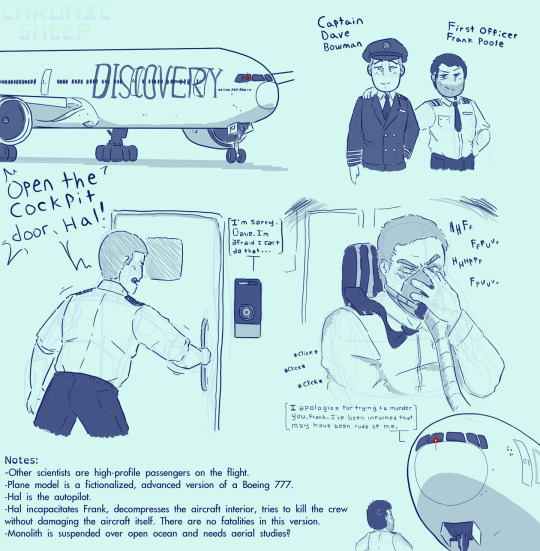
Space Odyssey Airplane AU because I have Autism.
#2001 A Space Odyssey#2001 aso#2001 A Sky Odyssey#Dave Bowman#Frank Poole#Hal 9000#Commercial Aviation#Avgeek#Boeing 777#This AU doesn't make a whole lot of sense but I don't really care
66 notes
·
View notes
Text
“Barbie” (2023)
-a big budget, pop art, visually interesting film with a vibrant personality. I love it!
-also, easily the best use of Ryan Gosling since “Drive”
-I’m truly impressed with what Greta Gerwig got away with here.
+she crammed this with energy and made me hearty laugh the whole time
-the story is Barbie discovering sadness, the real world, clashing with the patriarchy, and just the wonderment of being a woman
-there’s a couple small details I want to highlight before the big stuff
-Kate McKinnon’s look is almost certainly inspired by the awesome cult film “Liquid Sky”, another tone poem of a film
-the small, tender scene of Barbie telling the old woman (at the bus stop) she’s beautiful, and said woman saying “I know” with a vicious smirk is magical
+it says just as much as the soon to be famous “being a woman is impossible” monologue in its own beautiful warmth
-the opening riff on “2001: A Space Odyssey” is the film personified; irreverent, playing with greatness, funny, colorful, and just a blast
-(after a man notes he is not part of the board) “I’m a guy with no power...does that make me a woman?
-I like how there are two matrix tributes; picking between two choices/shoes (original) and the at first mysterious Ruth being the Oracle (“Reloaded”)
-“after I found out the patriarchy didn’t include horses, I honestly lost interest”
-alright then, onto the big pillars
-here is a film saying, with all earnestness and actual thought, that we should approach our hearts with collectivism, bond over our shared yearns and desires and messiness
-(only a scold could say this film excludes love, a scold who didn’t actually watch the film and just wants any kind of attention)
-Margot Robbie nails every bit, from first thinking about dying, to discovering tears, to making Barbie’s naïveté to growth a journey of substance
-this film is unapologetic about being feminist (which shocked the fuck out of me) and does so with actual insight, not checking off a list (which is rad)
-note too, cause grumps will try to bury this, it asks men to not define themselves by conquering others, or stepping on necks, but by creating worth on their own goals and just being present in the moment. It asks them to free themselves from their own shackles
-there is a certain richness to male characters when female directors (and writers, etc) take over; new colors are displayed in the rainbow
-it is so immensely satisfying to see actual sets (practical, on camera) and vivid primary colors (after years of blurred muted-ness)
+its value in the aesthetic form and character of the film is immeasurable
-there isn’t a single false note in the “impossible to be a woman” speech, aptly delivered by America Ferrara. It simply presents itself with the courage of its convictions
-said being truly sucks and absolutely rules; the sheer inconsistency is its beauty and power. Neatness does not contain growth
-I like how the film emphasizes the under seen will truly change and save the world
-oh, I almost forgot to mention; I just about rolled out of my chair at the ribbing of zealots for the Synder cut of Justice League
-this is an artificiality to this film that is staggeringly authentic
-this is truly one of the best examples of just being the world and subverting the world in the 2020’s (and frankly all time); this will be studied and admired for years
-also also, the battle at the beach and the dance street fight among Ken’s is an all timer of a scene (it uses the past to power the present)
-I have a sneaking suspicion this may be the “Iron Man”(2008) to the upcoming Mattel cinematic universe; the vast number of following films will largely be less interesting, less full of the personality of its creators (with some exceptions)
-but this film is worth it; it is alive and joyful. It cannot be accountable for the world(s) that comes after it, only how it exists during its run time.
-and, truly, Gerwig has made something special here. It’s just going to make the lives of everyone who accepts it for what it is (love and color of form) many times better. It is a triumph
#barbie#greta gerwig#margot robbie#ryan gosling#america ferrera#kate mckinnon#will ferrell#michael cera#film#barbie 2023
23 notes
·
View notes
Text
Was anyone going to tell me that the 2001 Space Odyssey book starts saying that everyone that has ever lived and died has a star assigned in the sky or I had to read it myself and related it to Robin?
50 notes
·
View notes
Text
Rebel Moon Review Round Up
Here are some insightful reviews for Zack Snyder's Rebel Moon Part One: A Child of Fire
For my fellow Snyder Fans I recommend these reviews because they are good critiques that engage with the work. I also recommend them to those that didn't like the film. Not to change your mind but to offer pieces of genuine criticism.
A SPACE OPERA GONE OPERATIC by Joshua Polanski
Excerpt:
Rebel Moon was originally conceived of as a Star Wars film but, freed from the burdens of canon and Disney’s top-down production management, the end result feels less like a derivation and more like a successor. I wouldn’t dare suggest it will have the same sort of cultural influence as Star Wars — that’s a fundamentally irreplicable phenomenon in the streaming age. Yet, when compared to the recent garbage from Disney (Marvel and Star Wars both), Snyder proves the most capable and artful custodian of the extravagant, quasi-religious space-opera. His longstanding technical mastery that evolved into mainstream formal iconoclasm with the extreme shallow focus with the 15mm Canon dream lens of Army of the Dead and the 4:3 aspect ratio for Zack Snyder’s Justice League (2021) is taken to new extremes with the creative freedom provided by Netflix. Snyder’s inviolable picture bids for a better Hollywood. If we’re lucky, it might even be a taste of what’s to come.
Rebel Moon Part One: A Child of Fire Review by Kilo Orange
Excerpt:
The village reminded me of the famous painting by Jean-François Millet, which shows two peasants saying a prayer over the soil. It would fit, for that painting is about the "Angelus", a prayer about the Virgin Mary being told she would conceive and bear the Messiah, and here we have the virginal Kora with her seeds, the fruit of her womb, after lifting out a barren rock. Of course, with Snyder's knowledge of art and artistic subversion, he'd know about that painting, and that Salvador Dali (another subversive Catholic) suggested it wasn't an Angelus prayer, but that the two peasants were actually praying over a dead child. And when the painting was X-rayed, they did indeed find a child's coffin had been painted over. Millet had turned grief into a prayer.
That's what Zack Snyder does in Rebel Moon.
A dead child. Snyder's grief has not abated over his daughter's suicide in 2017 and now it's loudly joined by the curse that will affect all survivors of a loved one’s suicide - guilt. This film is infused with guilt. All the heroes who we collect as the film goes on feel guilty about some tragedy in their past.
Rebels of the World Unite (and Take Over) by John Demetry
Excerpt:
Following an assassination of the Mother World’s King and his family that severed the galaxy’s royal bloodline, Kora hides on Veldt. That’s where the film opens. Snyder visualizes Kora’s idyll and the Mother World’s encroachment into it with sexual symbolism. A phallic spacecraft penetrates a yonic fold in space-time accompanied by Tom Holkenborg’s monolithic score (a sound-visual consummation worthy of Stanley Kubrick’s 2001: A Space Odyssey). In Snyder’s eroticized odyssey, Kora fondles and smells the dirt while plowing a field. The night before planting the soil, the farming community pleases the gods with sexual couplings that ensure a strong sprout. Following that night’s pairing off, Sam girlishly teases Kora for her nocturnal pleasure noises—at the precise moment that the Mother World ship infiltrates the sky above Veldt. Seeds spill from Kora’s pouch—recalling Sean Connery’s phallic gun rising from the grain in John Boorman’s Zardoz. As expressed by Snyder’s highly sophisticated film language, Kora’s sexual dilemma—her vulnerability—sows danger that reaps action.
Rebel Moon Part One: A Child of Fire Review by Phil Halz
Excerpt:
Rebel Moon, like Man Of Steel and BVS, is a powerful reckoning with the bleak, cruel elements which are always implicit in their respective genres, whether the hateful fanboy nerds want to acknowledge them or not. And the subversion of Star Wars with a Seven Samurai premise illustrates the ways in which Star Wars falls short of the humanistic greatness in Kurosawa's masterworks. To say nothing of the Disney entries, which suppress and deny the sadness at the core of The Empire Strikes Back.
An Action Film with the Touch of a Poet by Armond White
Excerpt:
Kids who love sci-fi and video-game fantasy are easily impressed as part of the fun, but the genre has rarely produced filmmakers who are aesthetically distinguished. Snyder has that gift (his imagery unites ideas from Terrence Malick’s A Hidden Life with Walter Hill’s Geronimo: An American Legend — the lyrical, the hostile, plus the historical. And he achieves visual-kinetic excitement that George Lucas, Peter Jackson, and the Wachowskis should envy. With the exception of Chad Stahelski’s dazzling John Wick 4, nothing on screen this year has been so visually striking as Rebel Moon. The essence of movement and spectacle sets them apart — and the expressiveness of Kora’s flashbacks, conveying her emotional need and androgynous mystery (creating promise for Part II), surpasses the juvenile tomboy gestures of Daisy Ridley’s Rey in the Star Wars saga.
6 notes
·
View notes
Text


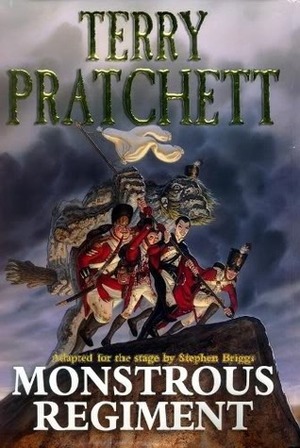

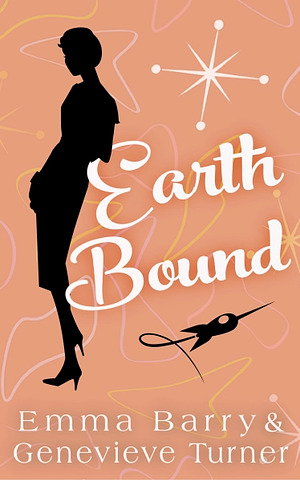
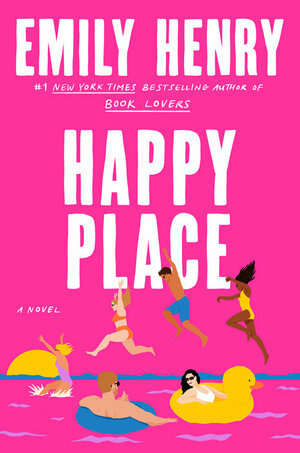
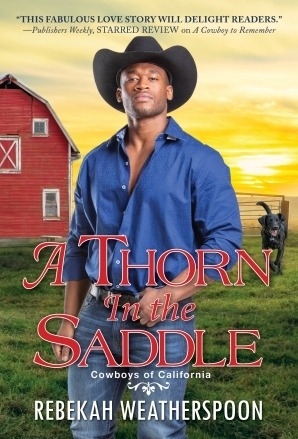
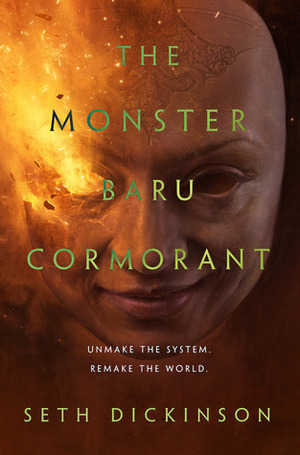

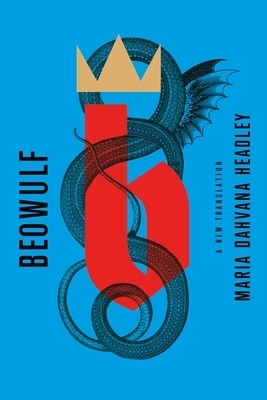
August Monthly Recap:
I was participating in the Magical Readathon by Book Roast, so my reading this month was primarily dictated by that. I was also on vacation for a good chunk of the month, so I had lots of time to read some of the longer books that have stuck around on my TBR for a while, and ended up reading 17 books. My favorite was Monstrous Regiment, with a shoutout to Happy Place and Earth Bound.
After the Dragons by Cynthia Zhang: 3.5/5
Deep as the Sky, Red as the Sea by Rita Chang-Eppig: 3/5, dnf
Kill the Farm Boy by Delilah S. Dawson & Kevin Hearne: 1.5/5, dnf
The Monster Baru Cormorant by Seth Dickinson: 4.5/5
Happy Place by Emily Henry: 4.75/5
The Tyranny of Faith by Richard Swan: 4.25/5
2001: A Space Odyssey by Arthur C. Clarke: 3.5/5
Translation State by Ann Leckie: 3.5/5
Earth Bound by Emma Barry & Genevieve Turner: 4.75/5
A Thorn in the Saddle by Rebekah Weatherspoon: 3.5/5
Mango, Mambo & Murder by Raquel V. Reyes: 3.5/5
Topaz by Beverly Jenkins: 3.5/5
Strong Poison by Dorothy Sayers: 4.5/5, re-read
Beowulf translated by Maria Dahvana Headley: 4.5/5
Monstrous Regiment by Terry Pratchett: 5/5
The Crow by Alison Croggon: 4.5/5, re-read
Star Dust by Emma Barry & Genevieve Turner: 4.5/5
And my 2023 goals under the cut:
23 in 2023: 15 [+0]
Read 100 books: 137/100 [+17]
Translated works: 4 [+0]
Physical TBR: 10 [+0]
Top of TBR: 5 [+2]
Books in Spanish: 0
Read 40% AOC: 23.9% [+0.8%]
Discworld Books: 3 [+1]
Series: 22 started vs. 25 caught up/finished [+2/+0]
Storygraph recs: 2 | avg. 3.25/5 [+0]
Indigenous authors: 1 [+0]
9 notes
·
View notes